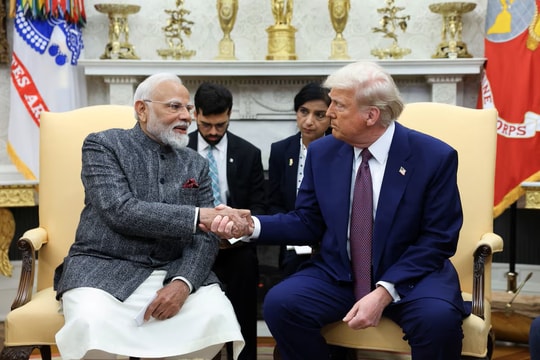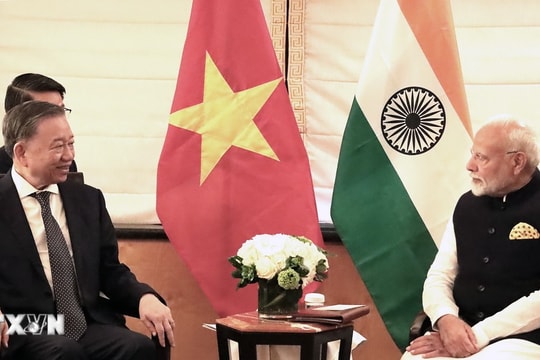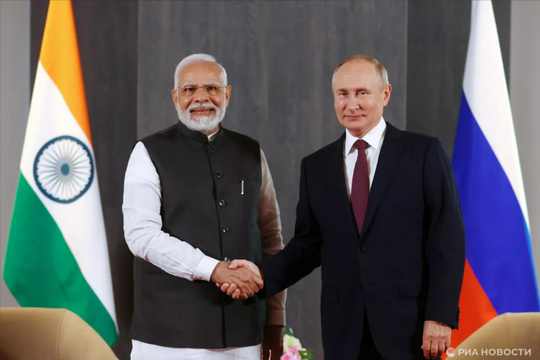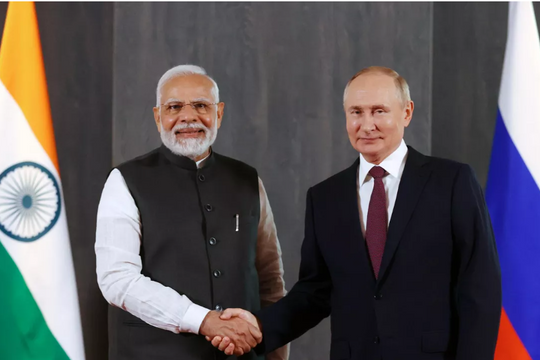Indian Prime Minister Visits Israel: 'Historic' Trip?
(Baonghean) - Mr. Narendra Modi has just become the first Indian Prime Minister to visit Israel after arriving in Tel Aviv on July 4, on a 3-day trip.
The 'historic' trip, as described by the host country's Prime Minister, Israel, does not appear to have helped ease long-standing tensions in the region.
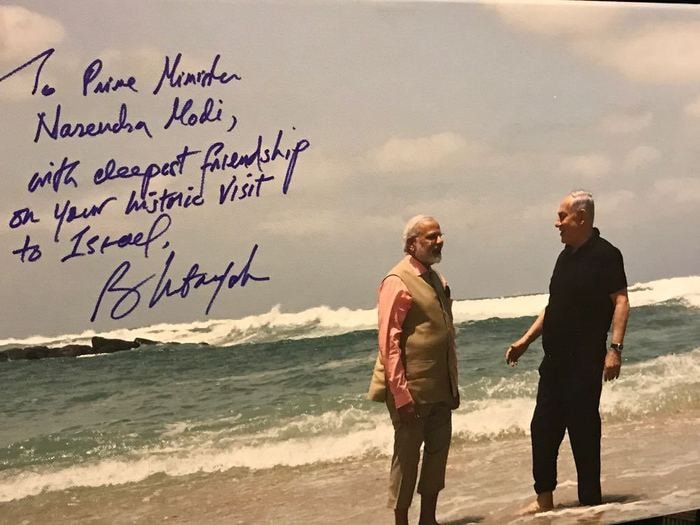 |
| Photo with dedication from Israeli Prime Minister to Indian Prime Minister. Photo: Twitter. |
Friendship blossoms
During his three-day stay in Israel, Indian Prime Minister Narendra Modi tweeted 50 times, expressing the joy he and his “good friend Netanyahu” had together. Many people believe that, compared to the starting point, the relationship between Indian Prime Minister Narendra Modi and Israeli Prime Minister Benjamin Netanyahu has now blossomed into a comprehensive friendship, “enriched” by walks on the beach and even handwritten messages.
Not only did they witness the two leaders laughing and joking, exchanging warm hugs, touring Israel by helicopter, enjoying art and learning about history, people were also surprised by the "romance" of the two leaders when they walked along the Dor beach in Haifa on July 6. They came there to discuss desalination (the process of turning seawater into drinkable water), but besides that topic, who knows, these close friends might have mentioned other things, while rolling up their pants, waving and smiling among the Mediterranean waves. "There's nothing like going to the beach with friends!", that's what the Israeli Prime Minister posted on social media afterwards, warming the hearts of lonely world leaders out there.
Observers even compared the Indian Prime Minister's state visit to the famous romantic novels of writer Nicholas Sparks, especially when Mr. Netanyahu gave Mr. Modi a photo taken together on the beach, with a handwritten caption: "To Prime Minister Narendra Modi, with the deepest friendship on his historic visit to Israel". The farewell moment of the two leaders when the Indian Prime Minister's 3-day visit to Israel ended was also full of emotion, when the two waved goodbye with tears. Host Netanyahu posted on his personal page a greeting in Hindi: "Thank you for visiting Israel, Prime Minister Modi. We will see you again soon".
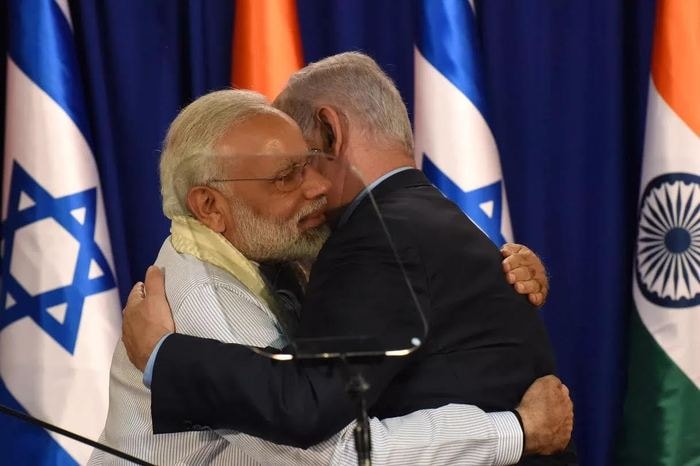 |
| The leaders of India and Israel exchanged warm hugs during their recent visit. Photo: Getty |
Complicated past
What was clear was that the two leaders had a great time together, but they also worked hard to finalize a number of agreements. They signed seven important agreements on water, agriculture and space technology, and established a $40 million joint research and innovation fund. They also spent time reviewing common security interests. In April, the state-owned Israel Aerospace Industries signed a nearly $2 billion deal to supply the Indian army and navy with missile defense systems, making it the most lucrative defense contract in Israel’s history.
Looking at the warm relationship between the two leaders and their steady progress in strengthening the alliance, one might forget that before Modi took office in 2014, India’s relations with Israel were extremely lukewarm, partly due to India’s history of supporting the Palestinians.
It was the first country outside the Arab world to recognize the Palestine Liberation Organization as the legitimate representative of the Palestinian people in 1974, and then became one of the first to recognize the State of Palestine in 1988. This longstanding relationship has been complicated by Modi and his BJP, who has been more open about his rapprochement with Israel. “Earlier, people didn’t openly acknowledge the relationship,” said PR Kumaraswamy, a professor of Middle Eastern studies at Jawaharlal Nehru University in New Delhi. “It was like you have a girlfriend, but you’re not ready to bring her home to your family.”
So it is striking that the BJP has repeatedly stated that it believes it can build independent relationships with both Israel and Palestine. And the latest state visit is a clear illustration of that policy. “We want to build a strong relationship with Israel while supporting the Palestinian cause,” Vijay Chauthaiwale, the BJP’s foreign policy chief, said. “And we have no qualms about that.”
In 2015, after India abstained from a UN Human Rights Council vote condemning Israel, the Palestinian ambassador to India demanded an explanation. Now, in response to Modi’s visit, Palestinian Deputy Foreign Minister Tayseer Jaradat expressed his displeasure when he told CNN: “We want the prime minister of an important country like India, who is visiting the region, to visit Palestine when he visits Israel.”
In short, the pictures of Modi and Netanyahu in recent days may have created a warm picture of relations between the two countries, but that is still not enough to dispel long-standing regional tensions. The Palestinian reaction to the trip also partly shows that India's plan for an independent relationship with each country is not as easy as Modi thinks.
Phu Binh(According to VOX)
| RELATED NEWS |
|---|

